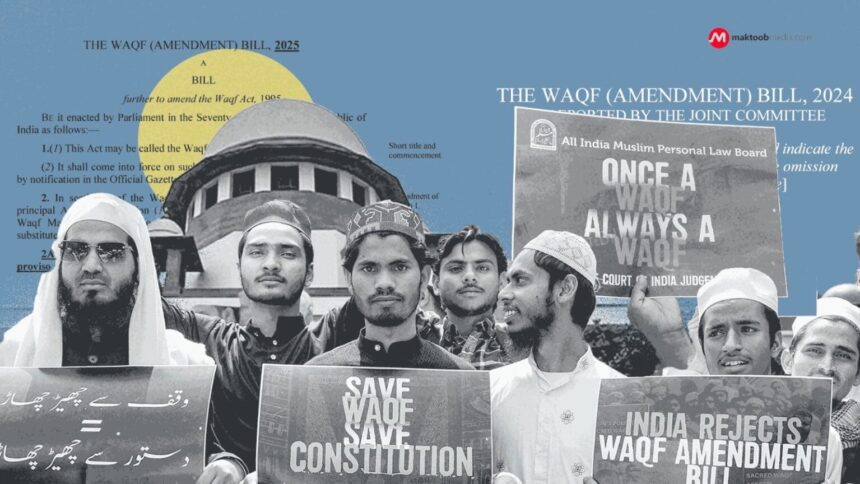The Supreme Court is set to announce its verdict on September 15 regarding a request to halt the enforcement of the Waqf (Amendment) Act, 2025.
This issue was thoroughly examined in May by a bench chaired by Chief Justice B.R. Gavai, who had recently taken office. The hearings spanned three consecutive days and concluded on May 22, at which point the case was reserved for judgment.
The petitions reached the Supreme Court in early April, shortly after the Waqf (Amendment) Bill, 2025 was passed in Parliament. On April 17, a three-judge bench led by then Chief Justice Sanjiv Khanna urged the Union government to commit in court that it would not modify the nature or status of waqf properties nationwide based on the new amendments.
Following Justice Khanna’s retirement on May 13, the case was reassigned to a two-judge bench, which included Chief Justice Gavai and Justice A.G. Masih on May 15. Further hearings were scheduled to commence on May 20. During these sessions, Chief Justice Gavai noted that a parliamentary statute is presumed to be constitutional, making a stay on its operation quite uncommon.
The new legislation has faced significant opposition. Over 100 petitioners, including parliament members, state entities, political parties, community organizations, and leaders, have characterized the Act as a “gradual appropriation” of Muslim properties. In contrast, the Union government has labeled it a necessary measure to address what it claims is “widespread encroachment” on both public and private lands.
Senior lawyers, including Kapil Sibal, Abhishek Singhvi, Rajeev Dhavan, and Huzefa Ahmadi, represent the petitioners, whereas Solicitor General Tushar Mehta advocates for the Union government. Additionally, senior advocates Rakesh Dwivedi and Ranjit Kumar represented the state governments of Rajasthan and Haryana, respectively, who support the Union government’s position.
“This case pertains to the systematic appropriation of waqf properties. The government should not dictate what issues can be raised…” Sibal stated earlier.
Meanwhile, numerous Muslim organizations have organized large protests nationwide, denouncing the Waqf (Amendment) Act as unconstitutional and Islamophobic. Several prominent leaders from the INDIA alliance, along with other non-BJP parties, have joined in these demonstrations.










